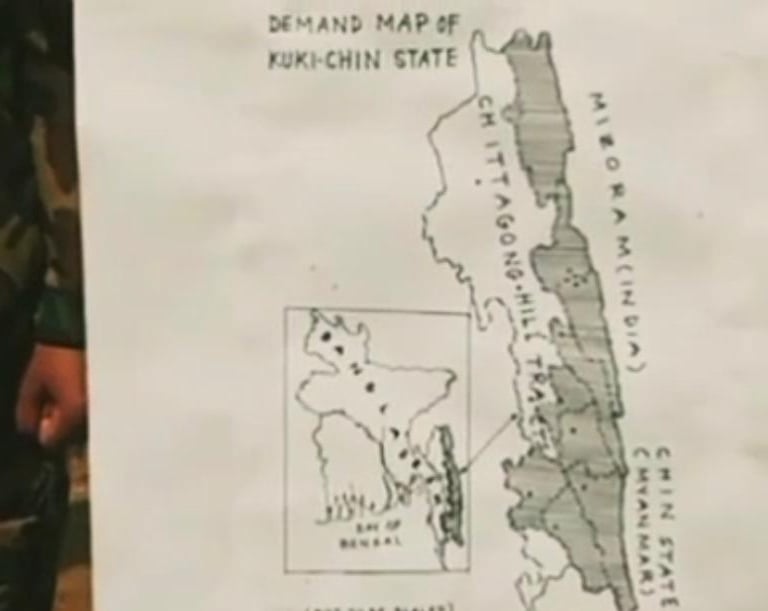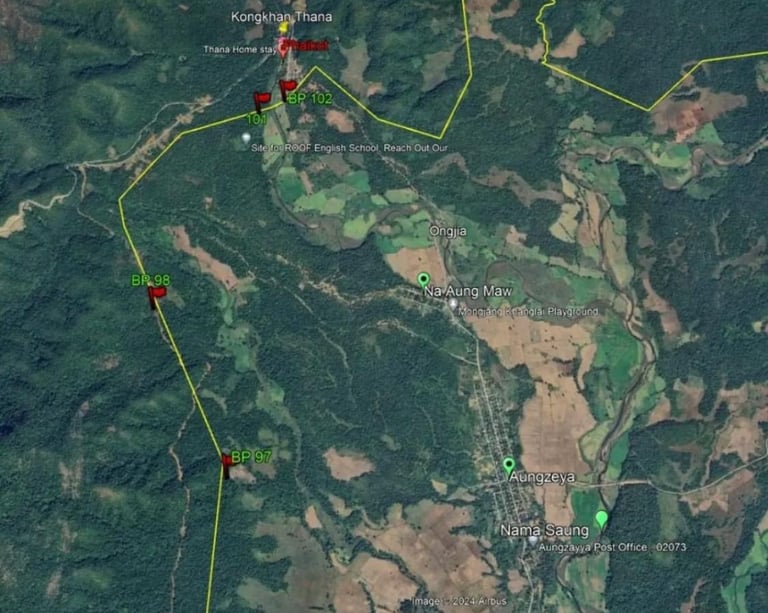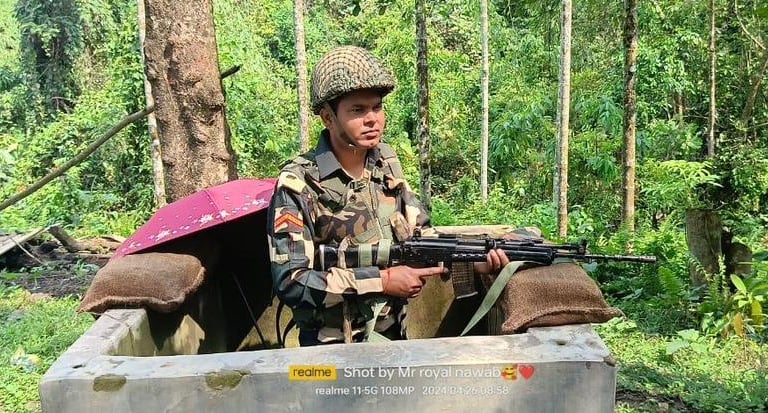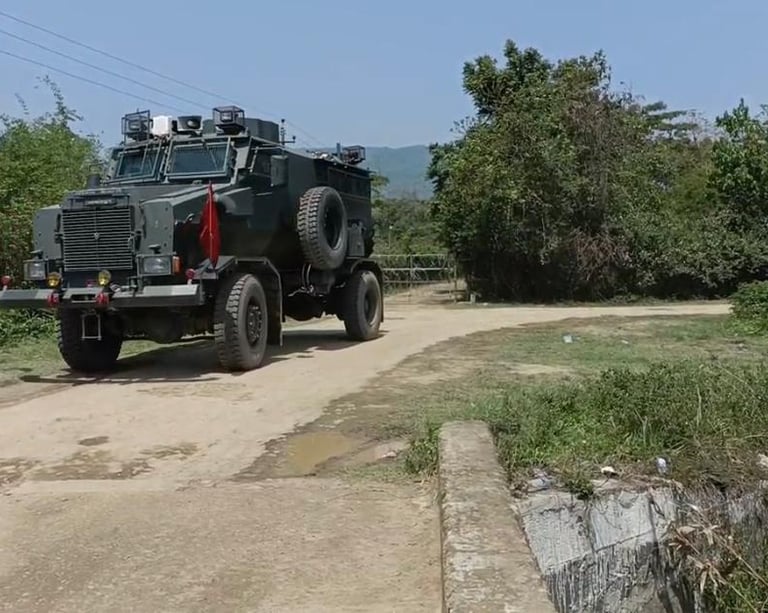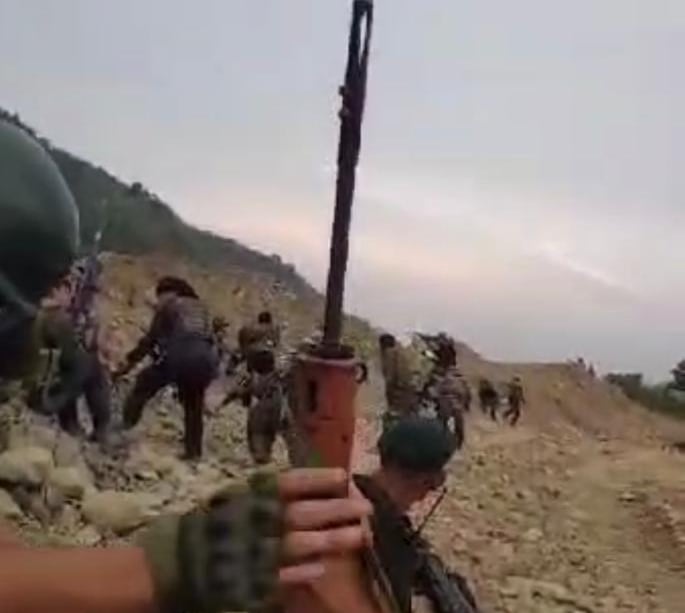Are Myanmar and Manipur pawns in the West’s Geo-Political Chess Game
CONFLICT
Imphal: In the intricate web of global politics, the ongoing conflict in Myanmar and Manipur are not isolated incidents as reported by Western media but rather pieces in a larger geopolitical puzzle.
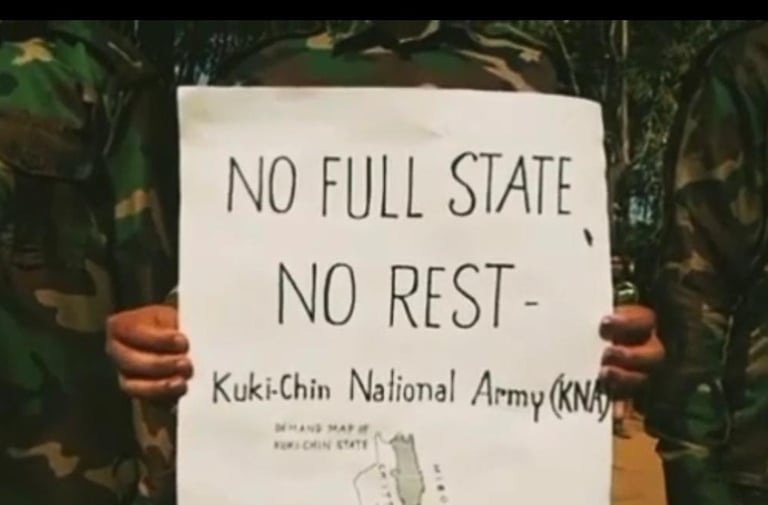

While the world's attention may be focused on conflicts in other regions, the situation in Myanmar and its spill-over effects into Manipur hold significant implications amidst the prevailing global turmoil.
Contrary to the portrayal by Western governments and media, the conflict in Myanmar is not merely an internal struggle between a military regime and democratic forces. Instead, it embodies a complex narrative rooted in decades of Western interventionism aimed at reasserting control over a former British colony. The involvement of armed ethnic groups, once utilized by Western powers during World War II, underscores the historical entanglement of Myanmar's trajectory with Western interests.
In parallel, the ethnic violence in Manipur, that erupted on May 3, 2023, reflects deeper tensions rooted in population warfare and land insecurity. Despite Western governments, including the US and Western media's attempt to frame it as religious persecution, the reality is far more complex, with indigenous Meiteis on one side and the statistically larger trans populations of Kuki-Zo, inhabiting the contagious border areas of between Myanmar, India and Bangladesh, known for striving for an independent country of its own are caught in a struggle for autonomy and territorial control.
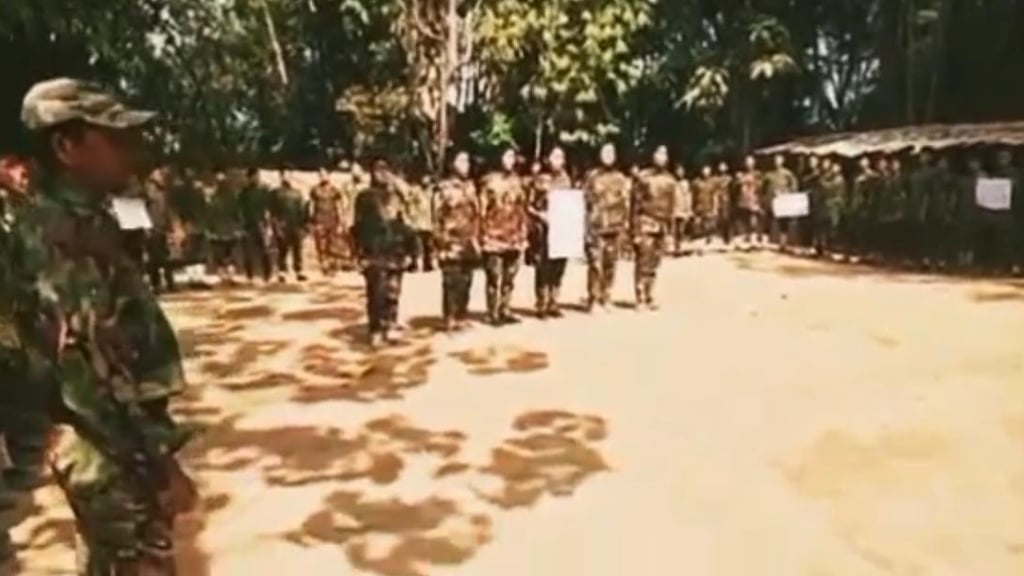

While Kuki-Zo were quick to demand Separate Administration for their community, citing the ethnic violence, the growing narratives of the marginalised Meiteis are pushing forward the theory that the Manipur violence is a well-designed narco-terrorism inflicted by foreign Kuki-Zo terrorists in collusion with the community’s armed groups in the state who are under Suspension of Operations with the government of India.
The Western narrative extends further, with groups like the North American Manipur Tribal Association (NAMTA) that allegedly has links with Canada-based Khalistani Indian separatists, leveraging international platforms to criticize India, alleging violations of religious freedom.
While the US and the UK are implementing stringent measures to control immigration, including border walls and strict deportation policies, they have been vocal critics of the steps taken by both the state and central governments in India to regulate and curb illegal immigration from Myanmar into Manipur. This discrepancy highlights a double standard in their approach to immigration issues, where they advocate for strict measures within their own borders while criticizing similar actions taken by other countries.
The criticism directed towards India's efforts to manage immigration from Myanmar into Manipur reflects broader geopolitical dynamics and the selective application of principles. Despite facing similar challenges with illegal immigration, particularly in regions bordering conflict zones like Myanmar, the US and the UK have been quick to condemn India's measures as overly harsh or unjustified.
This inconsistency underscores the complexities of immigration policy and the broader political considerations that shape international discourse on migration. It also raises questions about the fairness and equity of global approaches to immigration management, highlighting the need for a more nuanced and collaborative approach to addressing the underlying drivers of migration.
Such narratives, intertwined with broader geopolitical agendas, underscore the multifaceted nature of external interference in regional conflicts.
In Myanmar, the recent escalation, marked by attacks on Naypyidaw, highlights the psychological warfare employed by opposition forces against the junta. However, the see-saw nature of the conflict reflects the enduring struggle for dominance amidst Myanmar's ethno-political landscape and broader geopolitical objectives, including the containment of China's influence.
Ultimately, the fate of Myanmar and Manipur hinges on the outcome of a wider global contest between competing interests. Whether they descend further into chaos or find a path towards stability depends on collective efforts to challenge existing power structures and foster meaningful dialogue.
Until then, Myanmar and Manipur will remain ensnared in the grip of perpetual conflict, mere pawns in the broader geopolitical chessboard.

